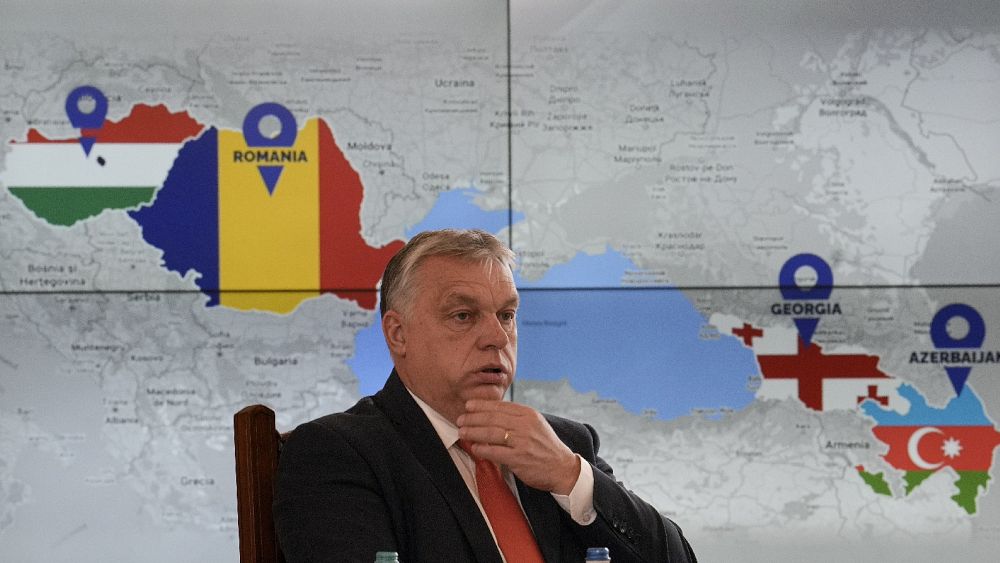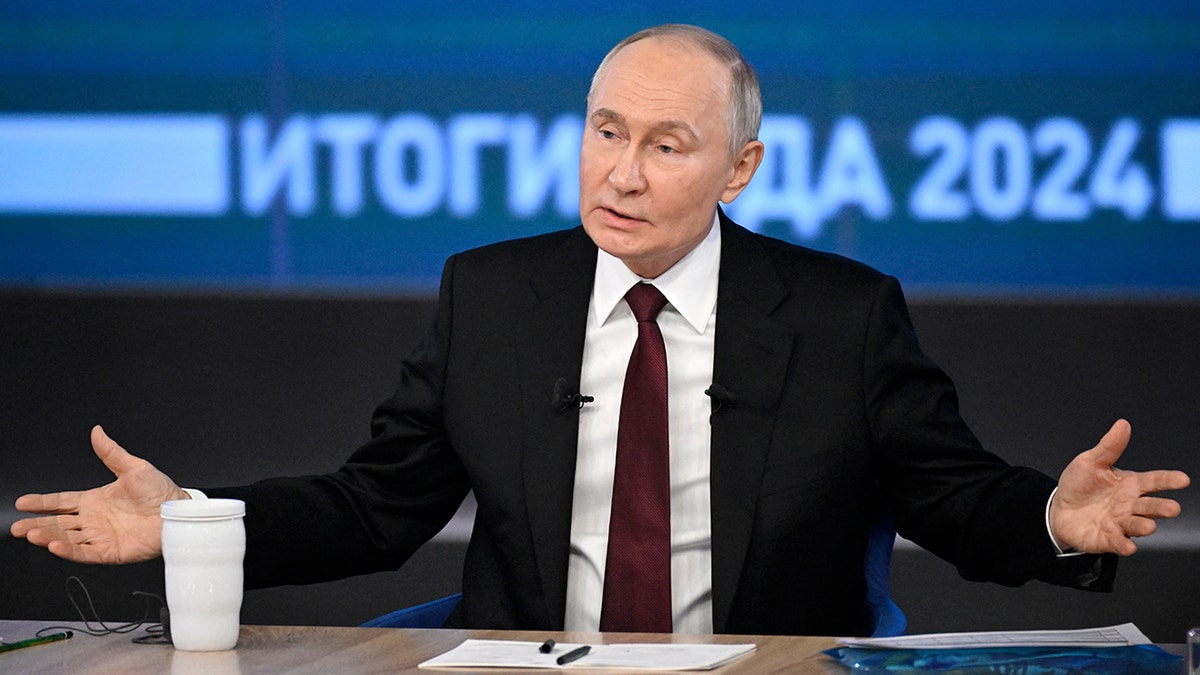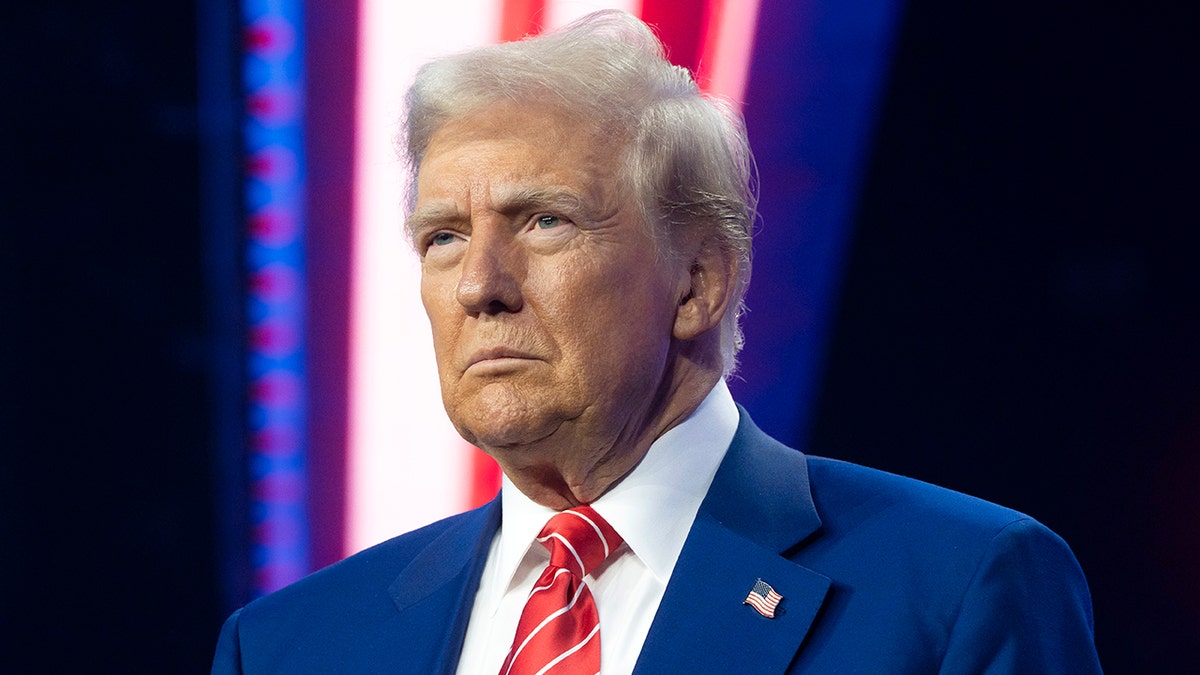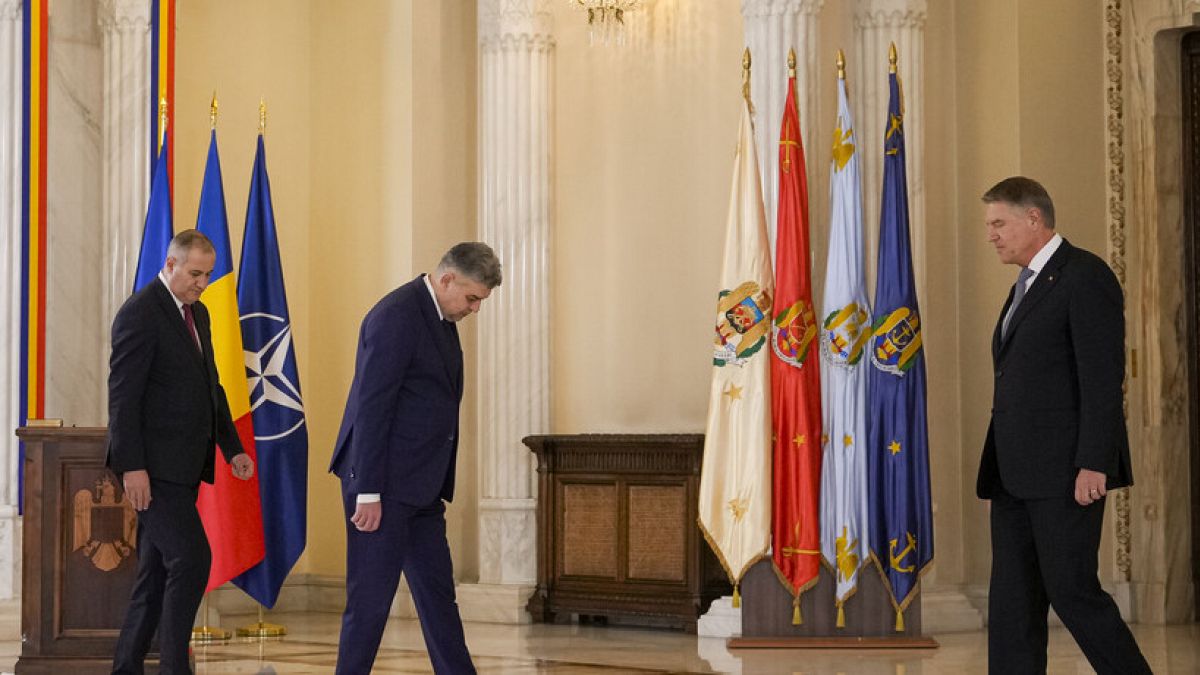World
The EU wants ‘green’ Azeri energy. Here’s why it’s controversial

‘Green’ Azeri energy isn’t a magic bullet for EU dependence on Russia, experts say.
“Since the beginning of Russia’s war, we have decided to turn our back on Russian fossil fuels and to diversify toward reliable energy partners.”
Ursula von der Leyen’s comments in December last year came at the signing of a deal to construct a new submarine cable under the Black Sea, one that will supposedly allow Azerbaijan and Georgia to supply green electricity to Hungarian and Romanian markets.
Despite the forthright and defiant tone of the European president’s remarks, experts say the fanfare that’s accompanied the so-called Black Sea Cable project belies the immense issues surrounding the initiative. Chief among these are its cost-effectiveness and the actual feasibility of stated environmental goals.
“The European Union was stupid to think this was a good idea,” says Andras Perger, a climate and energy campaigner with Greenpeace Hungary. “There’s too much talking about it, an uncertain project that for me, doesn’t seem economically viable at all.”
‘Our glaciers are diminishing’
At present, more than 90% of Azeri energy comes from non-renewable sources, given the wind farms in the Caspian Sea that should feed the prospective cable do not, as of yet, actually exist. There’s been talk of potentially also utilising Georgia’s hydropower potential, but local environmentalists warn the country’s capacity has long been generously overstated.
“We don’t have any means of supplying European Union countries. Really, it’ll be enough if we’re able to satisfy our own needs,” says Dato Chipashvili, an analyst at Green Alternative, a Georgian NGO. “The potential will be questionable in future too, due to climate change, because our rivers are glacier-based, and our glaciers are diminishing.”
Even setting aside the work of building the necessary means of generation, previous studies suggest construction on the cable itself is likely to run upward of two to three billion euros, for a supply of electricity that threatens to fall considerably short of forecasted demand.
“They’re [the signatories of the deal] saying that it will be a three-gigawatt capacity line, but international sources say it’ll be just one gigawatt,” Perger explains. “It’s really nothing, from a European point of view.”
Marian Mandru, a fellow Greenpeace campaigner, argues there’s more scope for increasing sustainability locally in Hungary and Romania, both by improving energy efficiency and investing in domestic renewables. “I’m confident that if this money were put in better investments, and in particular more local investments, it would make a much bigger difference,” he says.
‘Civil society and media struggle to survive’
Other critics of the initiative have focused on what’s perceived as an element of hypocrisy to the EU’s goal of reducing energy dependence on Russia, arguing the initiative simply entails swapping out ties with one human rights violating dictatorship, engaged in an illegal war, for another.
Azerbaijan has long drawn international condemnation for its hostility toward dissenting voices, with tight restrictions on media freedoms, routine imprisonment of state critics, and repeat reports of torture used against detainees.
“The president has unchecked, absolute power in making all decisions,” explains Giorgi Gogia, associate director of Human Rights Watch’s Europe and Central Asia division. “It’s a situation where critics are often targeted on bogus criminal or administrative charges, and where civil society and media struggle to survive.”
Take activist Bakhtiyar Hajiyev, who in April 2022 was kidnapped by masked men and taken to an undisclosed location after he criticised the country’s interior minister. There, he was blindfolded, beaten, and threatened with assassination. Or opposition politician Tofiq Yagublu, who in January of that year suffered multiple injuries while in police custody. These were later written off by the prosecutor’s office as “self-inflicted”, not warranting further investigation.
As EU-Azeri relations have warmed amid the war in Ukraine, experts believe a lack of willingness to leverage Azerbaijan’s interests in European markets represents a missed opportunity for curtailing such abuses under the Aliyev regime. “The closer ties should definitely be linked to conditions of concrete rights improvement in the country,” Gogia says. “Unfortunately, we just don’t see that at this stage.”
Was it all just a message?
There’s also the issue of Azerbaijan’s long-running war with neighbouring Armenia over the status of Nagorno-Karabakh, an ethnically-Armenian breakaway region within Azerbaijan, which in recent years has been the theatre of violent, deadly, clashes between the two sides.
According to Richard Giragosian, director of the Regional Studies Centre in Armenia, the EU’s apparent reluctance to factor the conflict into the terms of any energy deal “tends to vindicate the victory of authoritarian Azerbaijan over the struggling democracy in Armenia.”
Whether the Black Sea Cable project has any real prospects for success will largely depend on the results of a forthcoming feasibility study, due for publication at the beginning of 2024. CESI, the Italian company commissioned to conduct the research, declined an interview for this story.
Overall, however, there’s a feeling among some that ultimately, the initiative may well have served greater purpose as a convenient political statement rather than a genuinely viable alternative to Russian energy dependence.
“Last year, there was a certain desperation about showing off what Europe’s options may be,” Mandru says. “Personally, I doubt it will happen. They probably just wanted to send a message – that somehow, we’ll manage.”

World
Beyoncé NFL Halftime Show Will Be Available to Rewatch on Netflix as a Stand-Alone Special

UPDATE, 12/25, 4:30 p.m. PT: Netflix said it will provide on-demand access to the full halftime performance of “Beyoncé Bowl” as a stand-alone special “later this week.” The 20-minute spectacle — her first live TV performance in four years — featured Post Malone, Shaboozey and her daughter Blue Ivy Carter to debut tracks from “Cowboy Carter” for the first time in a live setting.
EARLIER:
Beyoncé will light up the Houston night on Christmas with a halftime performance during the Ravens-Texans game on Netflix. To watch it, you’ll have to tune in live on Dec. 25 — otherwise, you’ll have only a few hours to catch the replay on Netflix.
Queen Bey’s Xmas performance will feature her first live performances of songs from “Cowboy Carter.” She’ll take the stage in her hometown during halftime of the Baltimore Ravens-Houston Texans matchup at NRG Stadium in Houston.
Netflix, as part of its accelerating push into live sports, snagged global rights to the NFL’s two Christmas Day 2024 games: the Kansas City Chiefs at the Pittsburgh Steelers (starting at 1 p.m. ET), followed by the Ravens-Texans game (4:30 p.m. ET).
Under Netflix’s agreement with the NFL, in the U.S., the two Christmas games expire three hours after the livestream ends (meaning Beyoncé’s performance and the Ravens-Texans game will no longer be available to rewatch on Netflix as of around 11 p.m. ET). Outside the U.S., the games expire on Netflix 24 hours after the livestream ends. The NFL livestreams will include ad breaks, even for Netflix subscribers on no-ads plans.
Few details are available for Beyoncé’s Christmas halftime show, but according to Netflix she is expected to bring along some “special guests” who are featured on “Cowboy Carter.” She’s a veteran of two Super Bowls: Beyoncé was the halftime performer for the 2013 game in New Orleans, which featured a Destiny’s Child reunion; and in 2016, she sang “Formation” when Coldplay was the headliner act.
On Christmas Day, Netflix’s pregame coverage will kick off at 11 a.m. ET, from NFL Network’s studios in L.A. and Acrisure Stadium in Pittsburgh. The streamer has tapped Mariah Carey to deliver a recorded performance of her record-breaking holiday hit “All I Want for Christmas Is You” before both of the day’s two games.
If you missed the window for Netflix’s NFL livestreams, you still have the chance to catch the reruns. As it stands right now, NFL Network is scheduled to re-air Ravens-Texans on Wednesday, Dec. 25, at 11:30 p.m. ET and Thursday, Dec. 26, at 5 a.m. ET. The channel will re-air Chiefs-Steelers on Dec. 25 at 8:30 p.m. ET and Dec. 26 at 2 a.m. ET. There is the possibility for additional re-airs but portions of the NFL Network’s programming schedule are still being determined. In addition, replays of both games will be available with NFL+ Premium ($14.99/month) in the U.S. and via DAZN internationally.
Note also that the two Netflix Christmas Day games will air on broadcast TV in the competing teams’ local markets and will be available live on U.S. mobile devices with an NFL+ subscription.
World
Zelenskyy lambastes Putin over Christmas strikes: 'What could be more inhumane?'

Ukrainian President Volodymyr Zelenskyy excoriated Russian President Vladimir Putin on Wednesday for launching attacks against energy infrastructure on Christmas Day.
Zelenskyy suggested the attacks were “inhumane,” but said they would not ruin Christmas.
“Today, Putin deliberately chose Christmas for an attack. What could be more inhumane? Over 70 missiles, including ballistic ones, and more than a hundred attack drones. The targets are our energy infrastructure. They continue to fight for a blackout in Ukraine,” he declared in a post on X.
The Russian Defence Ministry acknowledged a “massive strike” on its part, saying it hit energy facilities that supported Ukraine’s “military-industrial complex,” Reuters reported.
“The aim of the strike was achieved. All facilities have been hit,” the ministry said.
RUSSIA BATTERS UKRAINE POWER GRID AMID RISING CONCERN PUTIN COULD ORDER BALLISTIC MISSILE ATTACK THIS WEEKEND
Ukrainian President Volodymyr Zelenskyy talks with the media during the European Council Meeting in Brussels on Thursday. (Pier Marco Tacca/Getty Images)
Strikes against Ukrainian fuel and energy sources involved 78 air, ground and sea-launched missiles, in addition to 106 Shaheds and other kinds of drones, Ukraine’s air force claimed, according to The Associated Press.
“Unfortunately, there have been hits. As of now, there are power outages in several regions. Power engineers are working to restore power supply as soon as possible,” Zelenskyy noted.
Still, the Ukrainian leader declared that “Russian evil will not break Ukraine and will not spoil Christmas.”
US CITIZEN IMPRISONED IN RUSSIA GIVEN NEW 15-YEAR SENTENCE IN WAKE OF ESPIONAGE CONVICTION

Russian President Vladimir Putin holds his annual end-of-year press conference in Moscow on Thursday. (Alexander Nemenov/AFP via Getty Images)
The U.S. has provided billions of dollars’ worth of aid to help Ukraine fight the Russian onslaught that erupted in 2022, but Americans and their congressional representatives have been divided regarding whether the U.S. should continue supplying aid to Ukraine.
President-elect Trump, who will take office on Jan. 20, has called for a cease-fire and negotiations.
TRUMP MEETS WITH MACRON, ZELENSKYY AHEAD OF NOTRE DAME REOPENING CEREMONY IN PARIS

President-elect Trump looks on during Turning Point USA’s AmericaFest at the Phoenix Convention Center in Phoenix on Sunday. (Rebecca Noble/Getty Images)
CLICK TO GET THE FOX NEWS APP
In a post on Truth Social this month, Trump declared that “Zelenskyy and Ukraine would like to make a deal and stop the madness. They have ridiculously lost 400,000 soldiers, and many more civilians. There should be an immediate ceasefire and negotiations should begin.”
The Associated Press and Reuters contributed to this report.
World
Five journalists killed in Israeli strike near Gaza hospital

Journalists from Al-Quds Today were covering events at al-Awda Hospital when their vehicle was struck.
Five journalists have been killed in an Israeli strike in the vicinity of a hospital in central Gaza, according to Palestinian authorities and media reports.
The journalists from the Al-Quds Today channel were covering events near al-Awda Hospital, located in the Nuseirat refugee camp, when their broadcasting van was hit by an Israeli air strike, Al Jazeera’s Anas al-Sharif reported early on Thursday morning.
Footage from the scene circulating on social media shows a vehicle engulfed in flames.
A screenshot taken from a video of the white-coloured van shows the word “press” in large red lettering across the back of the vehicle.
The deceased journalists have been named as Fadi Hassouna, Ibrahim al-Sheikh Ali, Mohammed al-Ladah, Faisal Abu al-Qumsan and Ayman al-Jadi.
Al Jazeera’s Anas al-Sharif said that Ayman al-Jadi had been waiting for his wife in front of the hospital while she was in labour to give birth to their first child.
Breaking: Five journalists lost their lives after their vehicle was incinerated in an Israeli airstrike targeting the broadcasting van of “Al-Quds Today” channel while covering events near Al-Awda Hospital in the Nuseirat refugee camp, central Gaza Strip. pic.twitter.com/oiAmxgZwO5
— أنس الشريف Anas Al-Sharif (@AnasAlSharif0) December 26, 2024
Civil defence teams retrieved the bodies of the victims and extinguished a fire at the scene, the Quds News Network said.
There was no immediate comment from Israeli authorities.
The Committee to Protect Journalists (CPJ) earlier this month condemned Israel’s killing of four Palestinian journalists in the space of a week, calling on the international community to hold the country accountable for its attacks against the media.
At least 141 journalists have been killed in Israel’s war in Gaza since October 7, 2023, according to the CPJ.
-
/cdn.vox-cdn.com/uploads/chorus_asset/file/24924653/236780_Google_AntiTrust_Trial_Custom_Art_CVirginia__0003_1.png)
/cdn.vox-cdn.com/uploads/chorus_asset/file/24924653/236780_Google_AntiTrust_Trial_Custom_Art_CVirginia__0003_1.png) Technology5 days ago
Technology5 days agoGoogle’s counteroffer to the government trying to break it up is unbundling Android apps
-

 News6 days ago
News6 days agoNovo Nordisk shares tumble as weight-loss drug trial data disappoints
-

 Politics6 days ago
Politics6 days agoIllegal immigrant sexually abused child in the U.S. after being removed from the country five times
-

 Entertainment6 days ago
Entertainment6 days ago'It's a little holiday gift': Inside the Weeknd's free Santa Monica show for his biggest fans
-

 Lifestyle6 days ago
Lifestyle6 days agoThink you can't dance? Get up and try these tips in our comic. We dare you!
-

 Technology1 week ago
Technology1 week agoFox News AI Newsletter: OpenAI responds to Elon Musk's lawsuit
-
/cdn.vox-cdn.com/uploads/chorus_asset/file/25672934/Metaphor_Key_Art_Horizontal.png)
/cdn.vox-cdn.com/uploads/chorus_asset/file/25672934/Metaphor_Key_Art_Horizontal.png) Technology1 day ago
Technology1 day agoThere’s a reason Metaphor: ReFantanzio’s battle music sounds as cool as it does
-

 News2 days ago
News2 days agoFrance’s new premier selects Eric Lombard as finance minister



















